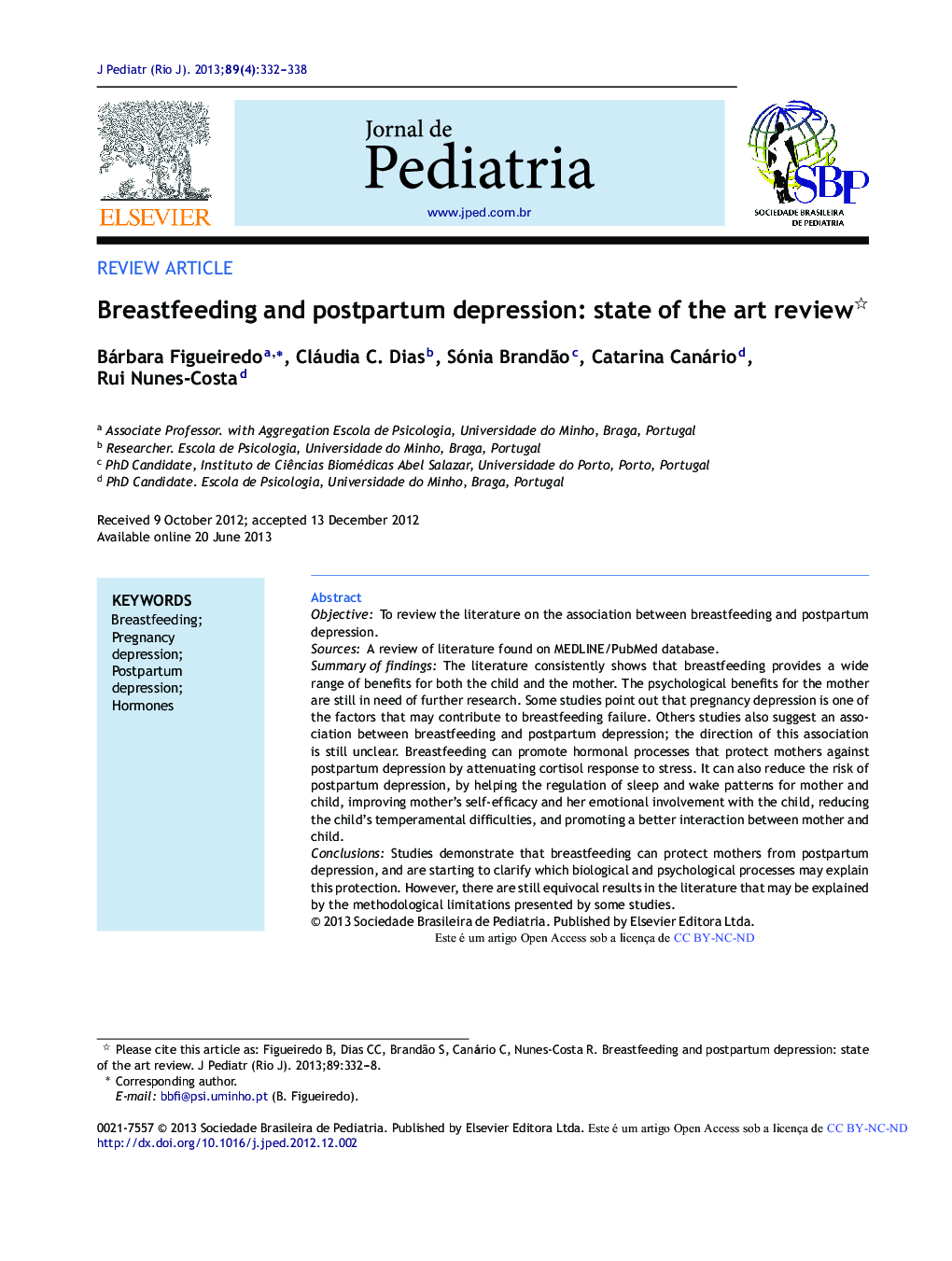| کد مقاله | کد نشریه | سال انتشار | مقاله انگلیسی | نسخه تمام متن |
|---|---|---|---|---|
| 4154075 | 1273691 | 2013 | 7 صفحه PDF | دانلود رایگان |

ObjectiveTo review the literature on the association between breastfeeding and postpartum depression.SourcesA review of literature found on MEDLINE/PubMed database.Summary of findingsThe literature consistently shows that breastfeeding provides a wide range of benefits for both the child and the mother. The psychological benefits for the mother are still in need of further research. Some studies point out that pregnancy depression is one of the factors that may contribute to breastfeeding failure. Others studies also suggest an association between breastfeeding and postpartum depression; the direction of this association is still unclear. Breastfeeding can promote hormonal processes that protect mothers against postpartum depression by attenuating cortisol response to stress. It can also reduce the risk of postpartum depression, by helping the regulation of sleep and wake patterns for mother and child, improving mother's self-efficacy and her emotional involvement with the child, reducing the child's temperamental difficulties, and promoting a better interaction between mother and child.ConclusionsStudies demonstrate that breastfeeding can protect mothers from postpartum depression, and are starting to clarify which biological and psychological processes may explain this protection. However, there are still equivocal results in the literature that may be explained by the methodological limitations presented by some studies.
ResumoObjetivoRevisar a literatura sobre a associação entre a amamentação e a depressão pós-parto.FontesUma revisão da literatura encontrada na base de dados MEDLINE/Pub-Med.Resumo dos achadosA literatura mostra, de forma consistente, que a amamentação fornece uma ampla quantidade de benefícios tanto para a criança quanto para a mãe. Ainda são necessárias mais pesquisas sobre os benefícios psicológicos para a mãe. Alguns estudos apontam que a depressão na gravidez é um dos fatores que pode contribuir para a não amamentação. Outros estudos sugerem, também, uma associação entre amamentação e depressão pós-parto, não estando clara ainda a direção dessa associação. A amamentação pode promover processos hormonais que protegem as mães contra a depressão pós-parto por atenuar a resposta do cortisol ao estresse. E isso também pode reduzir o seu risco, por auxiliar na regulação dos padrões do sono e vigília da mãe e do filho, melhorando a autoeficácia e o envolvimento emocional da mãe com a criança, reduzindo as dificuldades de temperamento e promovendo uma melhor interação entre eles.ConclusõesA pesquisa aponta que a amamentação pode proteger as mães da depressão pós-parto e começa a esclarecer que processos biológicos e psicológicos podem explicar essa proteção. Contudo, ainda existem resultados ambíguos na literatura que poderão ser explicados pelas limitações metodológicas apresentadas por alguns estudos.
Journal: Jornal de Pediatria - Volume 89, Issue 4, July–August 2013, Pages 332–338